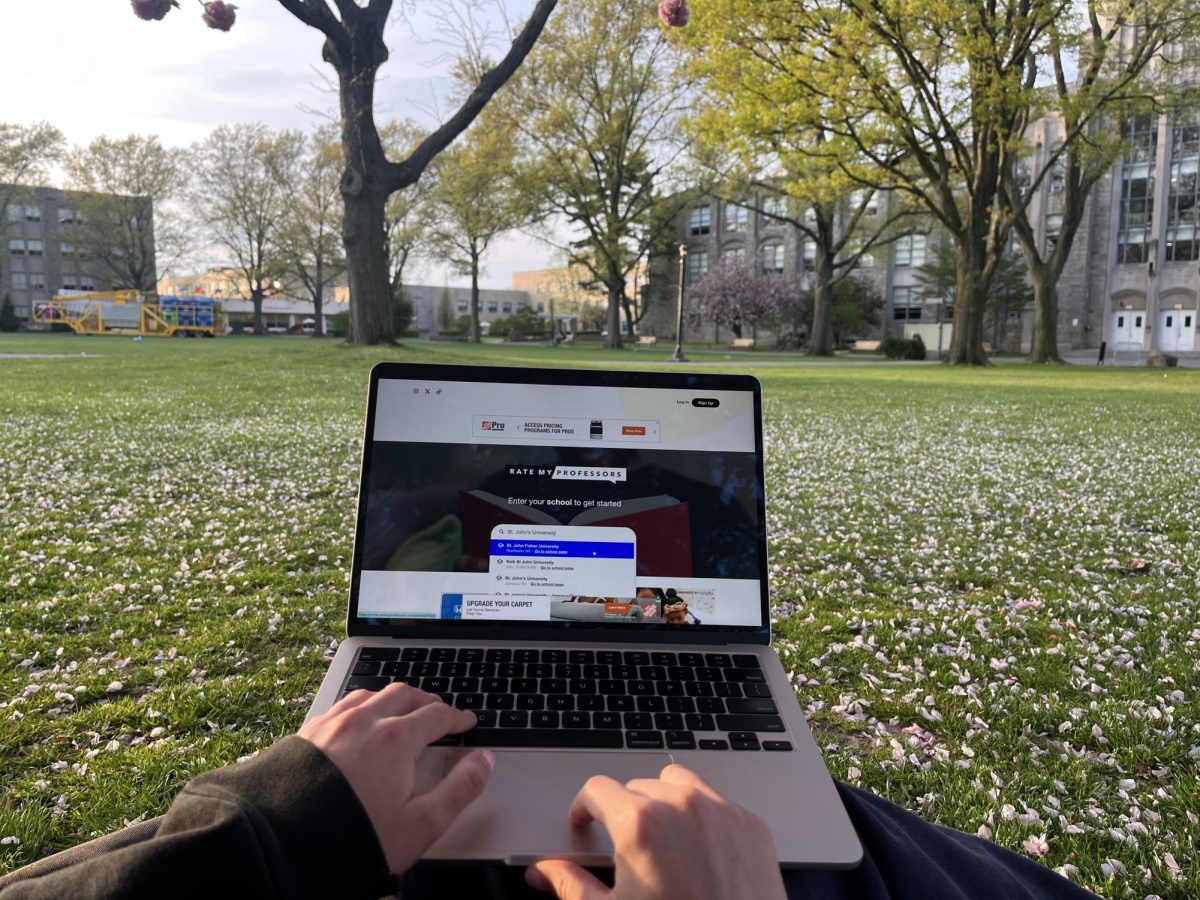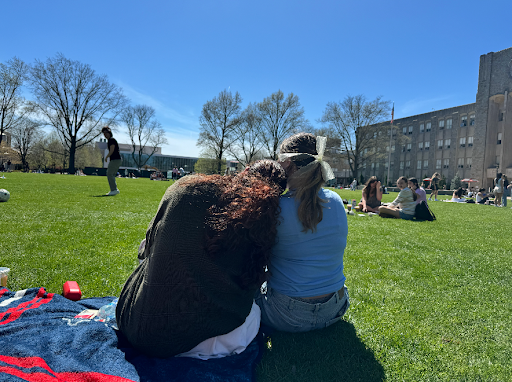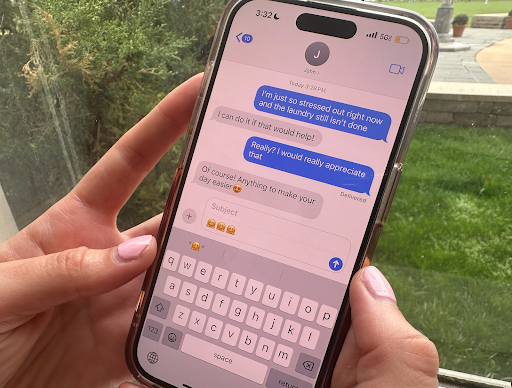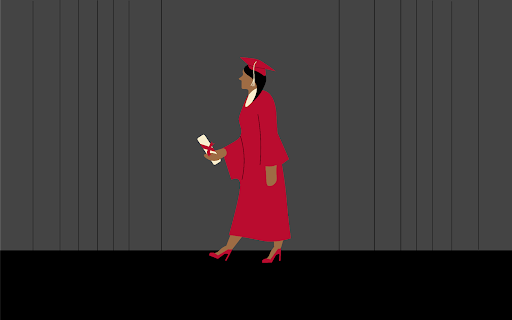Dr. Michaelle Kyriakides, Director of Experiential Education and Denise Hopkins, Executive Director of Career Center sat down with the Torch to give some tips on how to go about finding and starting an internship in your field of study.
Dr. Michelle Kyriakides, Director of Experiential Education
Torch: Are unpaid, for-credit internships worth it and why?
Dr. Michelle Kyriakides: Yes, absolutely. Any way you can get experience, it’s going to help build your resume and make you more marketable to an employer for when you graduate. In other industries, you may find a paid internship. I think the key is getting the experience, building your network and meeting as many people in the industry you want to go into, as possible, so that makes it easier for you once you graduate and are looking for full-time employment.
T: Why is networking so important? How can we network?
MK: Networking is the number one way, consistently people find jobs. It’s not what you know, it’s who you know. What you know is very important but who you know will help you get there.
You can network with your faculty; you can network with any employers that are on campus, and when we have companies coming on campus for an information session, that’s a networking opportunity. It’s thinking outside the box of who do I know that might know somebody. LinkedIn is another source for networking. We also have an alumni-mentor program that we host through the Career Center that we connect you with an alumnus.
T: What are some tips for putting together/writing a resume?
MK: Think of your resume as a one-page advertisement so when you’re doing your homework, read some job descriptions for your dream job and once you do that, create a list and say, what are the skills that I need to make sure I market? Then look back at your resume and
say, am I doing this or am I just talking about the job description for my part-time job? The number one skill any employer looks for is typically communication skills.
T: Why is it important for students to not only maintain a good GPA but to also build their resume at the same time?
MK: The 4.0 student is going to be attractive to many employers however, if they have a 4.0 and haven’t done anything else, they’re going to come upon a challenge where they don’t have anything to put on their resume. An employer is looking for the development of all of those types of skills so it’d be great if you had a 4.0 and three internships, but most employers do look for a certain minimal GPA, which varies by industry, but typically we recommend that if you have above a 3.0, that you include that in your resume.
T: Why is it important to have close relationships with your major-related professors and/or the Program Director of your field?
MK: Many of them are connected to the industry. Once they also get to know you, they will have an idea of what you’re passionate about and what the right types of opportunities are for you. When it comes across their desk or comes across our desk, yes we’ll post it for everybody, but if we know this is what you’re passionate about, we’ll post it on CareerLink, but we may reach out to you and say, I think this was a great opportunity. We talk a lot about branding and knowing what your brand is, knowing what you’re passionate about, where you want to go.
T: What are some mistakes that students make when going into an interview for a position and how can they avoid doing that?
MK: Number one, is not doing their research and not preparing. You really need to know something about the organization, reread the job description before you go to the interview and have stories prepared that show that you have the skills the employer is looking for. Also, dressing the part, knowing what’s appropriate for your industry. Going in dressed in a suit, dressing a little bit above what you would wear on a typical day. Having questions prepared for the interview is also good.
T: Despite the unemployment rate and economy, what kind of mentality should students have when going into searching for internships or jobs?
MK: I think going for the internships is key, early on, but being optimistic. Let’s face it, if you’re going in on a job interview and you’re happy to be there and you’re smiling and you’re optimistic and you’re confident, you’re going to come across as a much stronger candidate than someone who goes in thinking, well I’m not going to get this anyway. It’s all in how you present yourself. That confidence in knowing that things are getting better, you’re well-prepared coming from St. John’s.
T: For students who are still trying to declare their desired major, what are some factors they need to consider? What are some resources?
MK: We talk about really four things that you should consider when making any career decision. V.I.P.S (Values, Interests, Personality, Skills) All four of those things need to be together for you to be really satisfied with your career. All of our Career advisors are trained at giving what we call career assessments. They’ll ask you questions and ask you to rank how you feel about each answer and from there, you’ll be given a list of potential careers and the Career Advisor can then walk you through finding additional resources that you can learn more about that career path.
T: What is some advice or suggestions you have for students regarding internships and careers?
MK: Use the resources that are available. I think most students don’t realize that yes, the Career services are free to you but that’s because you’ve already paid your student fees and tuition, but really, the University is putting a significant amount of resources here at your fingertips and the backgrounds that the advisors have are incredible.
We’re growing. The institution is funding us to expand. We’re going to be hiring new career advisors over the next semester. We’re also building out our employer relations team to increase the number of opportunities for our students across the University and within the next couple of weeks, we will be moving to Chiang Ching Kuo Hall which is between Marillac and Sen Memorial Hall so keep your eyes open for a grand opening
Denise Hopkins, Executive Director of the Career Center
Torch: What can students do if they’re having a bad experience with their for-credit or paid internship?
DH: If it’s an internship for credit and you’re having a bad experience, you need to immediately let whatever faculty member is overseeing that internship, you need to have a conversation. They might be doing something that’s illegal or unethical and St. John’s will intervene in that case because we don’t want our students in any kind of situation that is exploitive in any way or unfair to them so that would be my first recommendation. If you’re doing an internship that’s not for credit, come and see us. Come to Career services if you think that if you’re having a particularly tough time or if you think whatnot, come and see us and we’ll provide guidance and support and help you manage that.
T: Why is it crucial to maintain professionalism in our social media networking sites?
DH: Your reputation, you are forming as a student is the same as you would as an entry level professional or mid-career, and if you are tweeting or blogging out there in the sphere or complaining or being inappropriate about your experience, that will come back to get you or harm you in most cases because future employers don’t want to hire people who are going to diss them.
T: Will employers ever look for a student’s personal Facebook, Twitter or blog?
DH: Although it’s frowned upon, employers do look for you. They’re not supposed to, but they will Google you, they will try to find you. You want whatever is out there to reflect positively on you as a prospective employee so you need to be very careful.



















